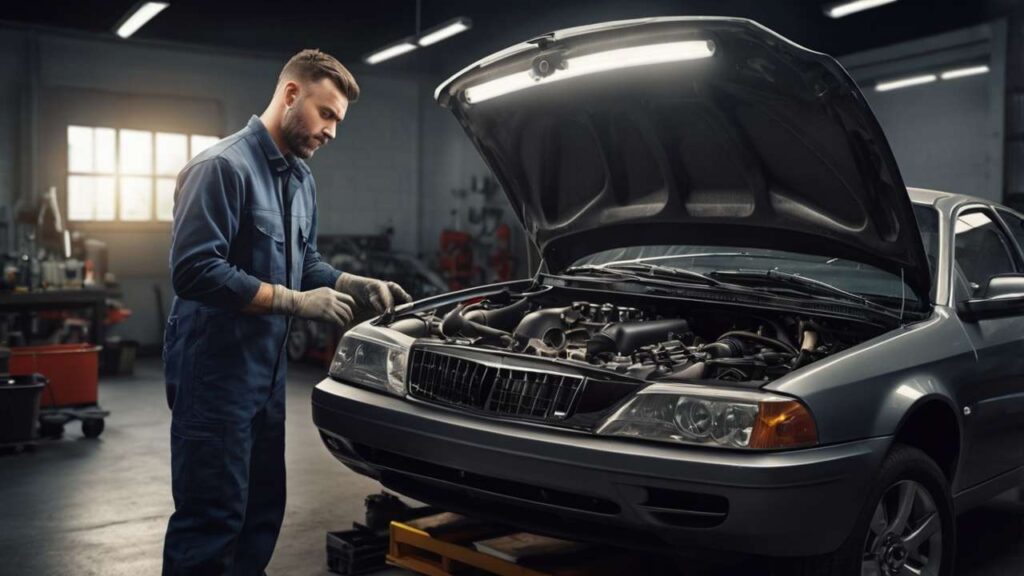Cars don’t fail overnight. They fail slowly, often silently, until one day the engine seizes, a warning light flashes, or a mechanic shakes their head with that dreaded “it’s going to cost you” look. This is exactly why Maintenance vs. Breakdown: The Financial Case for Consistent Engine Care and Service Schedules should be at the front of every driver’s mind.
It may sound dramatic, but the truth is simple: a few dollars spent on timely oil changes, filter replacements, or regular inspections could save thousands on an engine rebuild. I’ve seen drivers laugh off a glowing check engine light, only to end up towing their car two weeks later with a repair bill larger than three months’ salary. The lesson isn’t glamorous—it’s just reality.
- Preventative Tips That Actually Work
- The Harsh Reality: Cost of Engine Rebuild vs. Maintenance
- Timely Oil Changes: The Cheapest Insurance Policy
- Warning Signs Every Driver Must Recognize
- Solving the 3 Most Common Engine Problems
- Choosing Between OEM, Aftermarket, and Reconditioned Parts
- Vehicle Maintenance Plans: The Smart Way to Save
- Case Study: Two Drivers, Two Different Outcomes
- Expanding Horizons: Future Conversations in Engine Care
- FAQs
Preventative Tips That Actually Work
Consistency in car maintenance isn’t about being obsessive, it’s about being smart. Preventative care like changing oil and filters on time, scheduling periodic inspections, and never ignoring warning lights makes a huge difference.
Experts often say oil is the “blood of the engine.” Fresh oil keeps parts lubricated, reduces wear, and prevents overheating. Miss too many oil changes, and the sludge buildup can strangle your motor. Professional mechanics recommend following the manufacturer’s schedule, but in real life, many of us stretch it “just one more month.” That one month can mean the difference between smooth driving and being stranded on the side of I-40.
Even something small like replacing air filters keeps dust from clogging your engine. It’s cheap, fast, and honestly, it feels good knowing you’re avoiding a bigger mess later.
The Harsh Reality: Cost of Engine Rebuild vs. Maintenance
Let’s talk numbers. A standard oil change costs around $50–$100 depending on the vehicle. A complete engine rebuild? You’re looking at $3,000–$7,000, sometimes more if it’s a modern turbocharged engine. That’s not even mentioning the weeks without a car while parts are ordered and installed.
Is engine repair worth it? In many cases yes, but only if you’ve taken care of the vehicle up to that point. If you’ve neglected consistent service schedules, rebuilding may feel like throwing money into a bottomless pit.
Here’s something a professional mechanic told me once: “Engines don’t just die—they’re murdered by neglect.” Strong words, but painfully true.
For anyone in North Carolina searching for trusted professionals, check out Top-Notch Engine Repair Specialists. These experts know exactly what’s at stake when a driver ignores the basics.
Timely Oil Changes: The Cheapest Insurance Policy
Skipping oil changes might feel harmless, especially if the car still runs smoothly. But microscopic damage builds up every mile. Oil loses viscosity, contaminants circulate, and eventually, friction eats away at engine components.
I learned this the hard way. Years ago, I kept pushing my oil change “a little further” because life was busy. The result? Burnt oil, knocking sounds, and a repair that could have been avoided for the price of a dinner out.
The benefits of timely oil changes aren’t just mechanical—they’re financial peace of mind. Every time you pay that small service bill, you’re buying yourself thousands of extra miles without headaches.
Warning Signs Every Driver Must Recognize
Ignoring symptoms is what separates careful drivers from unlucky ones. Some of the most common engine warning signs include:
- Persistent knocking sounds
- Sudden loss of power
- Smoke from the exhaust (blue, black, or white all mean different issues)
- Oil spots under the car
- And, of course, the infamous check engine light
The Decoding the Check Engine Light guide explains how modern diagnostic tools can pinpoint problems before they snowball. Every driver should at least know the basics, because that glowing light isn’t there for decoration.
Solving the 3 Most Common Engine Problems
Professional repair shops report the same three issues more often than anything else: overheating, oil leaks, and timing belt failures. Each of these can lead to catastrophic damage if ignored.
Overheating often comes from a failing water pump or a clogged radiator. Oil leaks? Usually gaskets or seals that cost a fraction of a rebuild. Timing belts are a time bomb—if they snap, valves and pistons collide, and the engine is done.
Solving these issues early is not just possible—it’s simple. A reliable, expert mechanic can catch them during scheduled inspections, which is exactly why consistent care beats crisis repairs every time.
Choosing Between OEM, Aftermarket, and Reconditioned Parts
A big part of engine repair is deciding on parts. Do you go OEM (Original Equipment Manufacturer), aftermarket, or reconditioned?
OEM parts are the safest bet for reliability but often cost more. Aftermarket parts can be cheaper but quality varies—some are excellent, others are junk. Reconditioned parts sit in the middle, usually offering good performance at a fair price, but they depend heavily on the reputation of the supplier.
From what I’ve seen, the best mechanics don’t force one choice on customers. Instead, they explain pros and cons clearly, giving you control over cost and quality. That kind of transparency is rare but it’s what separates the best shops from the rest.
Vehicle Maintenance Plans: The Smart Way to Save
A consistent vehicle maintenance plan is like a subscription to peace of mind. Many trusted shops offer packages covering oil changes, inspections, filter replacements, and sometimes discounts on repairs.
It might feel like paying for something you don’t need, but I’ve found that these plans create accountability. You’re less likely to skip a service if it’s already prepaid. Plus, spreading costs across the year is easier on the wallet than being hit with one massive bill.
Reliable resources like Pro Service Tips often emphasize maintenance plans as the cornerstone of cost-effective car ownership. And it makes sense—care now, save later.
Case Study: Two Drivers, Two Different Outcomes
Driver A followed a service schedule religiously—oil changes every 5,000 miles, filters swapped on time, annual inspections. Driver B only visited a mechanic when something “felt off.”
After 120,000 miles, Driver A’s engine still ran strong, with only minor repairs. Driver B? A blown head gasket and an engine rebuild that nearly totaled the car. The difference wasn’t luck. It was consistent care.
Stories like this aren’t rare. Mechanics see them every single day, which is why professionals keep repeating the same mantra: maintenance beats breakdown.
Expanding Horizons: Future Conversations in Engine Care
Beyond the obvious, there are emerging discussions every driver should watch. The shift towards hybrid and electric vehicle maintenance is huge, since their engines (or motors) require entirely different care strategies. Another topic is the role of AI diagnostics—modern tools that predict failures before they happen. And let’s not forget the growing debate on eco-friendly disposal of engine fluids and parts, which ties into sustainability.
These aren’t distant ideas—they’re natural extensions of conversations we’re already having about engine care. The future of reliable driving will mix tradition with technology, and drivers who stay informed will always be ahead.
For broader insights and tips, explore Pro Service Tips which continues to expand on these evolving topics.
FAQs
1. How often should I service my engine to avoid major repairs?
Most experts recommend every 5,000–7,000 miles for oil changes and annual inspections. Sticking to this routine greatly reduces the risk of catastrophic failure.
2. Is it cheaper to maintain or repair a car engine?
Maintenance is always cheaper. Spending a few hundred dollars annually prevents repair bills in the thousands.
3. Are aftermarket engine parts reliable?
Some are, but not all. The key is choosing from reputable brands and working with a professional mechanic who can guide you on quality.
The debate of Maintenance vs. Breakdown: The Financial Case for Consistent Engine Care and Service Schedules isn’t really a debate at all. Every dollar you invest in preventive maintenance multiplies in savings and peace of mind. Engines don’t quit because they want to—they quit because they weren’t cared for.
So, take control. Follow a service schedule, pay attention to warning signs, and don’t be afraid to ask your mechanic hard questions. Your car, your wallet, and even your sanity will thank you.
If you found this article useful, hit the share buttons below and spread it to fellow drivers, family, or friends who might be flirting with neglect. Trust me, they’ll appreciate the reminder before it’s too late.


